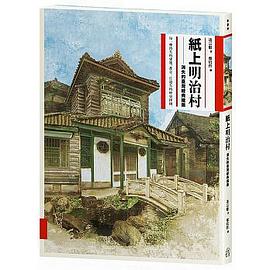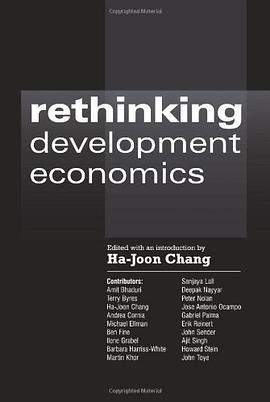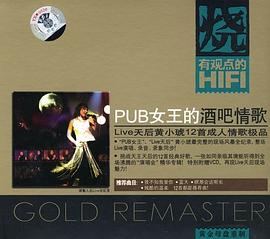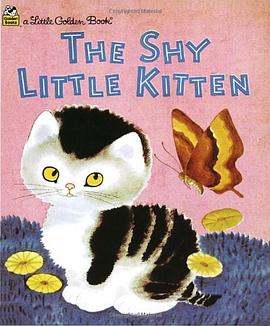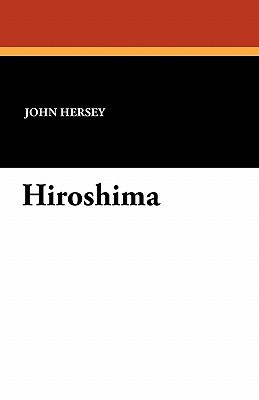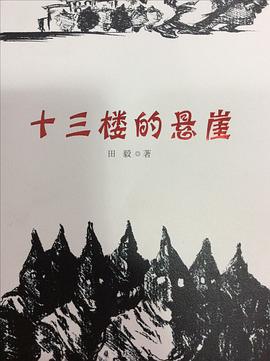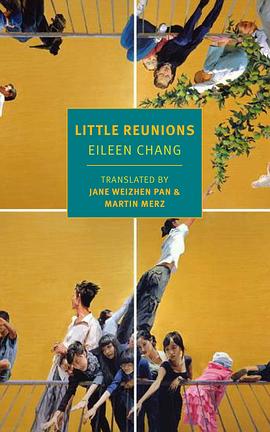

具体描述
Now available in English for the first time, Eileen Chang’s dark romance opens with Julie, living at a convent school in Hong Kong, on the eve of the Japanese invasion. Her mother, Rachel, long divorced from Julie’s opium-addict father, saunters around the world with various lovers. Recollections of Julie’s horrifying but privileged childhood in Shanghai clash with a flamboyant, sometimes incestuous cast of relations that crowd her life. Eventually, back in Shanghai, she meets the magnetic Chih-yung, a traitor who collaborates with the Japanese puppet regime. Soon they’re in the throes of an impassioned love affair that swings back and forth between ardor and anxiety, secrecy and ruin. Like Julie’s relationship with her mother, her marriage to Chih-yung is marked by long stretches of separation interspersed with unexpected little reunions. Chang’s emotionally fraught, bitterly humorous novel lifts a fractured mirror directly in front of her own heart.
作者简介
Eileen Chang (1920–1995) was born into an aristocratic family in Shanghai. Her father, deeply traditional in his ways, was an opium addict; her mother, partly educated in England, was a sophisticated woman of cosmopolitan tastes. Their unhappy marriage ended in divorce, and Chang eventually ran away from her father—who had beaten her for defying her stepmother, then locked her in her room for nearly half a year. Chang studied literature at the University of Hong Kong, but the Japanese attack on the city in 1941 forced her to return to occupied Shanghai, where she was able to publish the stories and essays (collected in two volumes, Romances, 1944, and Written on Water, 1945) that soon made her a literary star. In 1944 Chang married Hu Lan-ch’eng, a Japanese sympathizer whose sexual infidelities led to their divorce three years later. The rise of Communist influence made it increasingly difficult for Chang to continue living in Shanghai; she moved to Hong Kong in 1952, then immigrated to the United States three years later. She remarried (an American, Ferdinand Reyher, who died in 1967) and held various posts as writer-in-residence; in 1969 she obtained a more permanent position as a researcher at Berkeley. Two novels, both commissioned in the 1950s by the United States Information Service as anti-Communist propaganda, The Rice-Sprout Song (1955) and Naked Earth (1956), were followed by a third, The Rouge of the North (1967), which expanded on her celebrated early novella, “The Golden Cangue.” Chang continued writing essays and stories in Chinese and scripts for Hong Kong films, and began work on an English translation of the famous Ch’ing novel The Sing-Song Girls of Shanghai. In spite of the tremendous revival of interest in her work that began in Taiwan and Hong Kong in the 1970s, and that later spread to mainland China, Chang became ever more reclusive as she grew older. She was found dead in her Los Angeles apartment in September 1995. In 2006 NYRB Classics published a collection of Chang’s stories, Love in a Fallen City, and in 2007, a film adaptation of her novella Lust, Caution, directed by Ang Lee, was released.
目录信息
读后感
特约记者 黄今 【评价】 我觉得是张爱玲的顶峰之作。 您如何评价这部小说,有港台论者说不如《倾城之恋》这些作品。 《金锁记》、《倾城之恋》都是张爱玲二十多岁的作品。她的风格后来有变化。读者或者评论家看惯了某一阶段的小说,对这变化不能接受。这不是人家写得不好。...
评分一万年前看《同学少年都不贱》的时候,就赌咒发誓再也不看那些没良心的人翻出来的张爱玲的故纸堆。 所以我去年收到《重返边城》的一刹那还有点不好意思——买的时候倒激动,却忘记自己发过的宏愿了。所以今年看到《小团圆》的时候一点都不激动,打定主意不要看不要买。 我年轻...
评分在没看《小团圆》之前,我就有思想准备,这将不是一本令人愉悦的书。有张迷甚至在论坛上发帖说,“非张迷勿读《小团圆》。张迷慎读《小团圆》”很不以为然,一笑置之。我在小团圆出版的第一时间就读了港版,妖哥还很奇怪的问我,你又不是张迷,那么尝鲜干嘛?我说因为我相信张...
评分《倾城之恋》里,白流苏和范柳原在浅水湾附近的断桥边散步,那是傍晚,说起来地老天荒,两人都不讳言此刻彼此没有真心,希望辽远辽远的将来,也许会有的吧。一定是要现实生活都全部毁损了,才能有原始朴素的情感。否则,都是装扮。这大约就是遗少们的期盼。在他们的世界里,规...
评分豆瓣排版功能不强大,所以看着稍有点乱。—.— ——————以下是正文———————— 我的普通话不是很好,但是今天不用怕,因为我今天用张爱玲跟我爸爸妈妈的话,韩老师会帮我读出他们要说的话。 首先我要说明我跟张爱玲的关系。 (对照记)“一九五四年我住在香港英皇...
用户评价
前面好像好一点,后面好像翻译烦了似的,越译越差,不过对于张爱玲和小团圆来说,译成这样也就可以了
评分??英文版?
评分并不是译笔不好,只不过真的太太太太不像Eileen Chang了_(:з」∠)_
评分前面好像好一点,后面好像翻译烦了似的,越译越差,不过对于张爱玲和小团圆来说,译成这样也就可以了
评分??英文版?
相关图书
本站所有内容均为互联网搜索引擎提供的公开搜索信息,本站不存储任何数据与内容,任何内容与数据均与本站无关,如有需要请联系相关搜索引擎包括但不限于百度,google,bing,sogou 等
© 2025 book.quotespace.org All Rights Reserved. 小美书屋 版权所有





